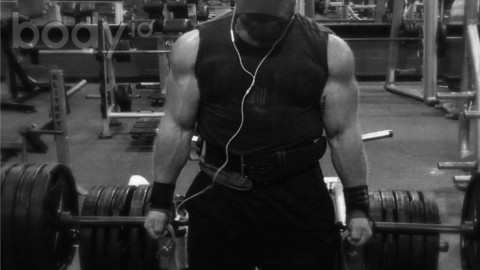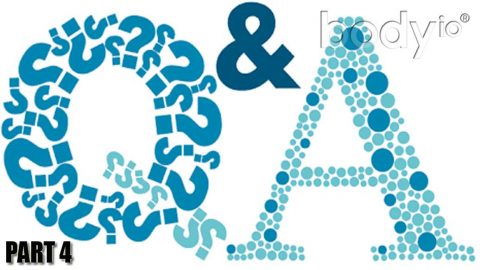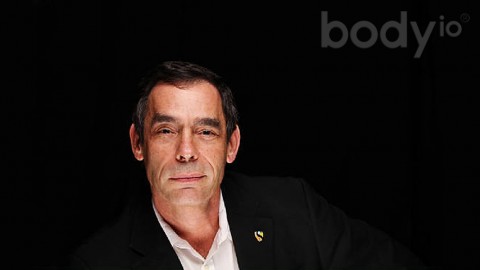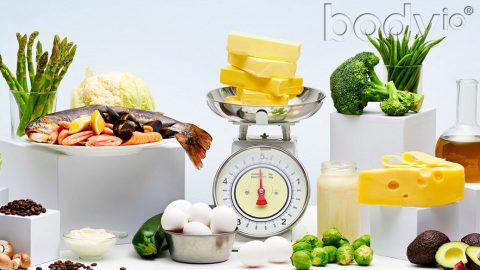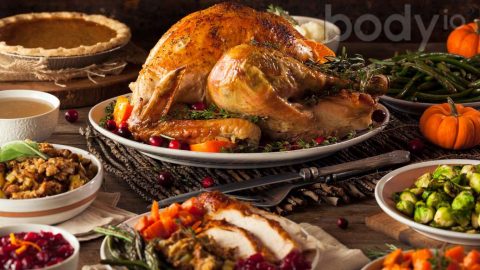magine that you’re a few days into your low-carb diet and when you suddenly you begin to feel “off”. You’re experiencing “brain fog”, light-headedness, weakness, and mood swings. Thoughts race through your mind.
I don’t feel right…could I be hypoglycemic? Oh no, my blood sugar is low. Maybe, I should drink some fruit juice…
STOP! Hold it right there! There is a better solution, but first, let’s try and figure out what may be the cause.
Why am I feeling this way?
When I hear someone say that they are hypoglycemic, I often raise an eyebrow. It is possible for some to experience episodes of acute hypoglycemia, or low blood sugar, but that term gets tossed around more than a hot potato. In fact, the medical field uses a variety of values in glycemic control as cut-off points in order to define hypo- or hyperglycemia. The cut-off values aren’t clear-cut[1]. If you have a true underlying medical cause, such as diabetes, or some other condition, then this article isn’t intended for you. This is for the rest of the population, most of whom may not even know what a common fasting blood glucose range is.
When one begins The Carb Nite® Solution, Carb Backloading™, or any other low-carb diet, there are some foreign physiological changes that can occur, and it is normal to be concerned or aware of these shifts. The “feeling” that you’re experiencing may indeed be a drop in blood sugar. Even if it’s within the normal range, you may experience the symptoms of hypoglycemia.
However, there could be other reasons that you aren’t feeling optimal. Improving metabolic flexibility to use fats for fuel, namely the rate at which fat oxidation adjusts to high fat intake, can vary[2-4]. You could also be experiencing a shift in electrolytes[5]. That being said, for the sake of keeping this article brief, I’m going to focus on blood sugar regulation. To ease your anxiety, and before you diagnose yourself with hypoglycemia, let’s sort a few things out.
What is hypoglycemia?
There are two main types of hypoglycemia: fasting and reactive[6].
Fasting hypoglycemia can occur in those who normally consume a diet high in carbs and then drastically cut them for the first time. These individuals are unable to maintain normal blood glucose levels because their metabolism has yet to develop enough of the proper enzymes to break down fat for fuel, thereby demonstrating metabolic inflexibility[7]. This can occur at the beginning of your ultra-low carb (ULC) journey when doing the 10-day reset of a Body IO protocol. If you have insulin resistance and a family history of diabetes, you are more susceptible to this response[7].
Reactive hypoglycemia is a response to an influx of carbohydrates, that creates a huge spike in blood sugar followed by a crash. The spike will cause more insulin to be released than needed, shuttling excess glucose into the muscle or fat cells, causing your blood sugar to drop. For example, beginning your Carb Nite (CN) with 2-3 pastries without consuming any protein may result in symptoms of reactive hypoglycemia. Sometimes, when clients have their first CN, they report shakiness, nausea, fatigue and flu-like symptoms. However, this can easily be fixed with a more structured CN.
How low is too low?
A “normal” fasting blood glucose (FBG) level is between 70 and 100 milligrams per deciliter (mg/dL). Anything less than 70 mg/dL is typically considered low in the clinical arena[8]. However, it is important to understand that normal in a clinical setting is only what’s common. Your normal target range is still very much an individual number.
For example, some people may function well at an FBG of 65 mg/dL which may be within their normal range. Due to variations in metabolism, I strongly suggest that you experiment with a blood glucose monitor to familiarize yourself with your blood sugar pattern. It’s a very inexpensive tool for you to use in your journey towards better health. You can purchase inexpensive monitors and strips over the counter at most local drug stores.
FBG should be taken first thing in the morning to determine a baseline. Blood glucose should also be measured any time you experience negative symptoms. Be aware that it’s normal to have variability after exercising and eating. If your numbers fall abnormally low or high when you go on a ULC-kick, then you will want to monitor it closely.
What should I do to feel better?
There are times when people on Carb Nite or Carb Backloading do experience hypoglycemia. However, reaching for orange juice or a Snickers bar is NOT going to help you. It will only make things worse in the long run, as it impairs your ability to use fat for fuel. The adaptation process impacts the amount of lipid accumulation in the muscle, thus impacting insulin sensitivity[9]. You want the ability to increase fat oxidation quickly. Instead of reaching for the sweet stuff, here are some suggestions, according to Kiefer.
“If you experience low blood sugar in the morning, have 2-3 eggs with butter every morning when you wake up (amount will vary person to person). Eggs spike insulin, and the added butter keeps it from spiking too high. For those of you who train and want that insulin spike post-workout, milk may help. Milk has a low glycemic index and lowers the glycemic index of foods it’s consumed with, but also has a high insulin index.”
Waiting too long before meals may not be the best choice for those of you experiencing hypoglycemic symptoms. Until the symptoms reside, have smaller ULC meals throughout the day.
Breathe…
Monitoring blood glucose and trying different tricks to keep your blood sugar within normal limits will help you understand your individual metabolism and identify if there is a need for concern. This monitoring should ease your anxiety, not make it worse. If you feel that you still have blood sugar issues, you should consult with an MD who is well versed in low-carb dieting, such as Body IO coach Dr. Rocky. Hang in there, be patient, and remember that a ULC diet can be one of the best ways to manage your blood glucose. If anything…you need this.
[expand title=”References (click to expand)”]
- Girish G, Agarwal S, Satsangi DK, Tempe D, Dutta N, Pratap H. Glycemic control in cardiac surgery: Rationale and current evidence. Ann Card Anaesth 2014;17:222-8. https://www.annals.in/text.asp?2014/17/3/222/135873
- Goedecke JH1, Christie C, Wilson G, Dennis SC, Noakes TD, Hopkins WG, Lambert EV. Metabolic adaptations to a high-fat diet in endurance cyclists. Metabolism. 1999 Dec;48(12):1509-17. https://www.ncbi.nlm.nih.gov/pubmed/10599981
- Hill JO, Peters JC, Reed GW, Schlundt DG, Sharp T, Greene HL. Nutrient balance in humans: effects of diet composition. Am J Clin Nutr 1991;54: 10–17. https://ajcn.nutrition.org/content/54/1/10.abstract
- Schiffelers SL, Saris WH, van Baak MA. The effect of an increased free fatty acid concentration on thermogenesis and substrate oxidation in obese and lean men. Int J Obes Relat Metab Disord 2001;25: 33–38. https://www.ncbi.nlm.nih.gov/pubmed/11244455
- Zeman FJ, Hansen RJ. Diabetes mellitus, hypoglycemia and other endocrine disorders. Clinical Nutrition and Dietetics. Seman FJ (ed). New York, Macmillan Publishing Co, 2nd Ed, 1991, pp 409-410
- Mahan, L. Kathleen, Escott-Stump, Sylvia, Raymond, Janice. Krause’s Food & The Nutrition Care Process. St. Louis, Mo.Elsevier/Saunders, 2012. Print.
- Carstens, MT, Goedecke, JH, Dugas L, Evans J, Kroff J, Levitt NS, Lambert EV. Fasting substrate oxidation in relation to habitual dietary fat intake and insulin resistance in non-diabetic women: a case for metabolic flexibility? Nutr Metab (Lond). 2013 Jan 14;10(1):8. https://www.ncbi.nlm.nih.gov/pubmed/23317295
- Hypoglycemia (Low Blood Glucose). American Diabetes Association website. https://www.diabetes.org/living-with-diabetes/treatment-and-care/blood-glucose-control/hypoglycemia-low-blood.html. Updated September 16, 2014.
- Galgani JE, Moro C, Ravussin E. Metabolic flexibility and insulin resistance. Am J Physiol Endocrinol Metab. 2008 Nov;295(5):E1009-17. https://www.ncbi.nlm.nih.gov/pubmed/18765680
[/expand]





